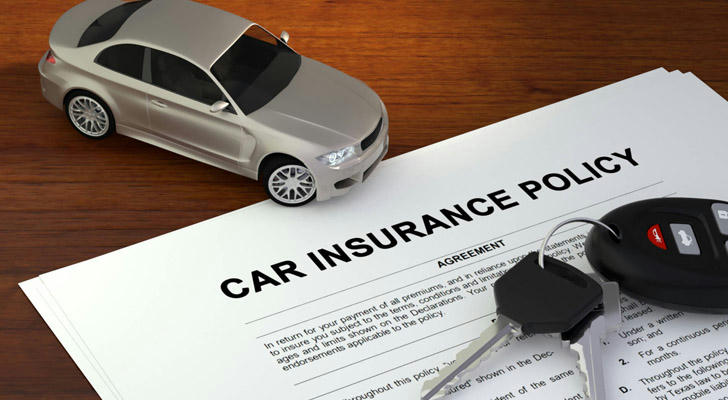How to Choose the Right Car Insurance: A Consumer's Guide
Choosing the right car insurance can be a daunting task, especially with so many options available in the market. Whether you are a new driver or have been on the road for years, understanding the various types of coverage, factors affecting your premiums, and how to evaluate insurance providers is essential. This guide will walk you through the key considerations to help you make an informed decision.

Understanding Car Insurance Basics
Before diving into the specifics of selecting a policy, it's important to understand the basic types of car insurance coverage available:
1.Liability Insurance: This is the minimum required by law in most states. It covers damages to other people and their property if you are at fault in an accident. Liability insurance typically includes two components: bodily injury liability and property damage liability.
2.Collision Insurance: This covers damage to your own vehicle resulting from a collision with another car or object, regardless of who is at fault.
3.Comprehensive Insurance: This provides coverage for non-collision-related incidents, such as theft, vandalism, natural disasters, or hitting an animal.
4.Personal Injury Protection (PIP): Often referred to as no-fault insurance, PIP covers medical expenses for you and your passengers after an accident, regardless of who caused it.
5.Uninsured/Underinsured Motorist Coverage: This protects you if you are involved in an accident with someone who does not have insurance or has insufficient coverage.
Understanding these types of coverage will help you determine what you need based on your personal circumstances and state requirements.
Assessing Your Coverage Needs
When choosing car insurance, consider your personal situation:
Vehicle Value: If you own a new or high-value vehicle, comprehensive and collision coverage may be worth the investment. Conversely, if your car is older and has a low market value, you might opt for liability only.
Driving Habits: If you drive frequently or have a long commute, you may want more extensive coverage to protect against potential accidents.
Financial Situation: Consider how much you can afford to pay out-of-pocket in case of an accident. Higher deductibles usually mean lower premiums but can lead to significant costs if an accident occurs.
State Requirements: Each state has different minimum insurance requirements. Make sure to familiarize yourself with your state’s laws to ensure compliance.
Comparing Insurance Providers
Once you've assessed your needs, it's time to start comparing different insurance providers. Here are some steps to guide you:
1.Research Companies: Look for reputable insurance companies that offer the coverage you need. Resources like consumer reports or online review platforms can provide insights into customer satisfaction and claim handling.
2.Get Multiple Quotes: Obtain quotes from at least three different insurers. This will give you a better idea of the average cost for the coverage you're seeking and help identify any outliers.
3.Evaluate Customer Service: Good customer service is crucial when dealing with insurance claims. Check reviews and ratings regarding how companies handle claims and customer inquiries.
4.Check Financial Stability: Look into the financial strength of the insurance company through ratings from agencies like A.M. Best or Standard & Poor’s. A financially stable company is more likely to pay out claims promptly.
5.Look for Discounts: Many insurers offer discounts for various reasons—safe driving records, bundling policies (like home and auto), good student discounts for young drivers, or even low mileage discounts. Be sure to ask about all available discounts when getting quotes.

Understanding Policy Terms
When reviewing policies, pay attention to specific terms and conditions:
Deductibles: This is the amount you'll need to pay before your insurance kicks in after an accident. Consider what deductible amount works best for your budget.
Coverage Limits: Each type of coverage has limits on how much the insurer will pay out in case of a claim. Ensure these limits are adequate for your needs—especially for liability coverage.
Exclusions: Every policy has exclusions—situations that are not covered by your insurance. Read these carefully to avoid surprises later on.
Making Your Decision
After gathering all necessary information and comparing options, it’s time to make a decision:
1.Weigh Pros and Cons: Create a list of pros and cons for each policy you're considering based on coverage options, costs, customer service ratings, and financial stability.
2.Consult with an Agent: If you're unsure about any aspect of a policy or need clarification on terms, don’t hesitate to reach out to an agent for assistance.
3.Trust Your Instincts: Ultimately, choose a policy that makes you feel comfortable and secure based on your research and understanding of your needs.
Maintaining Your Policy
Once you've chosen a car insurance policy, remember that it’s important to review it regularly:
Annual Review: At least once a year, reassess your coverage needs based on changes in your life—such as moving, purchasing a new vehicle, or changes in driving habits.
Stay Informed About Discounts: As life circumstances change (like graduating college or getting married), new discounts may become available that could lower your premium.
Shop Around Periodically: The insurance market can change frequently; it’s wise to compare rates every few years even if you're satisfied with your current provider.

Conclusion
Choosing the right car insurance involves careful consideration of your needs, thorough research on available options, and understanding policy details before making a commitment. By following this guide and taking the time to evaluate different providers and policies, you can ensure that you select an auto insurance plan that offers both adequate protection and peace of mind on the road. Remember that being informed is key—your safety and financial well-being depend on it!
